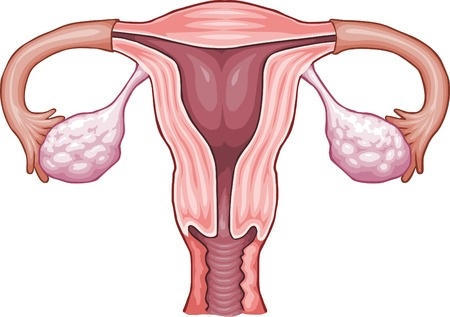As women in this modern-day society, many of us often get caught up in the fast-paced nature of our work that we tend to neglect our own health. This is especially so when it is related to some of our personal feminine matters.

Whether you fulfil a role as a mother, wife or daughter, it is important for us to take care of our own health first before we can care for our loved ones around us.
While an increasing number of women are becoming more aware of their health concerns due to the advent of Google, there are still some issues related to feminine health that women sometimes feel embarrassed to speak about, even to their doctors.
This results in a delay in diagnosis or treatment, which may lead to unwanted consequences.
Here are areas in a woman’s health that she or her partner may feel embarrassed to speak about. Remember, it’s better to speak to a doctor early on, and you are not alone!
1. Vaginal malodour, itch and discharge

It is common and normal for women to produce vaginal discharge that is physiological (normal). This discharge is usually clear, slightly whitish and usually odourless.
The term vaginal malodour means having an abnormal smell coming from the vaginal region. It usually indicates some form of vaginal infection and is different from normal vaginal discharge.
Other types of discharge that women commonly experience can include yellowish or greenish coloured discharge, clumpy and thick discharge and also vaginal itch. Having any of these symptoms mention usually point to an ongoing infection that needs to be evaluated by a doctor and treated.
Vaginal malodour is one of the most common problems that plague women of all ages, from younger girls in their late teens to even menopausal women. Whether it was your partner who told you that your vaginal area smelled odd, or you noticed it yourself, it must be embarrassing to experience this.
The most common causes for vaginal malodour, itch and discharge are due to Bacterial Vaginosis (caused by the bacteria called Gardnerella Vaginalis) or Vaginal Yeast Infection. These 2 organisms are the most common culprits that cause these symptoms in girls.
What to do about it?
These problems can be recurrent and really annoying for those affected.
However, changing our daily habits in terms of vaginal hygiene can actually prevent these infections. If you are experiencing acute symptoms, you will need swabs as well as medications to treat the infection first.
Here are some other useful tips to prevent this problem from coming back:
- Avoid wearing tight fitting jeans/pants/tights
- Do not douche your vagina (“vaginal douche” refers to the action of putting something into the vagina to rinse or irrigate it in an attempt to clean it)
- Do not use feminine wash
- Wear cotton underwear
- Wash your private area after sexual intercourse
- Avoid daily use of panty liner when you don’t have your period
Sometimes, these symptoms of abnormal vaginal discharge and malodour may also indicate the possibility of a sexually transmitted disease. This brings me to my next point.
2. Sexually Transmitted Diseases in Women
Having a sexually transmitted disease is not the news you will brag to your friends about. But as embarrassing as it is to acknowledge that you have caught a sexually transmitted disease, it is of absolute importance to seek treatment early for this.
Why? Because any delay can lead to unwanted consequences of:
- Spreading the infection to other partners
- Long term inflammation in your womb and fallopian tubes which can lead to infertility in the future
The most common STD in women is chlamydia, and the majority of women affected actually have NO symptoms, and are unaware that they even have the infection.
What can you do about it?
If you have multiple sexual partners, a new partner or recently found out that your regular partner has been unfaithful to you, go for an STD screen early to ensure you have not caught any infections. If you have, then early treatment can go a long way in preventing those unwanted long term consequences.
3. Painful sex

Trouble in the bedroom is often an issue that many couples feel embarrassed to broach or seek help for. Problems can affect both male and female partners, but we are here to discuss the problems which women face with sex.
This problem is more common than we think, and the most common difficulty that women face with sexual intercourse can be things like pain during sex or vaginismus (tightening of the vaginal muscles).
Problems like vaginismus mean that their partners find it difficult or almost impossible to engage in any penetrative intercourse. This is due to the aversion of these women of having anything near their vagina.
This can lead to a strain in a couple’s relationship with many marriages remaining unconsummated even.
What to do about it?
Difficulties with sex can be resolved but it requires time and patience. Remember that help is always available in the form of seeing a sexual therapist or counsellor help relieve your symptoms.
Other methods of treatment that may be useful can also include vaginal lubricants, dilators or topical painkillers.
⇒ Related Read: 4 Steps to Better Sex Communication
4. Subfertility

Subfertility generally describes any form of reduced fertility as compared to the average person, where the person may find it more difficult to get pregnant but pregnancy is still possible.
Infertility describes a situation whereby the fertility chances of the person are close to none, and the chances of pregnancy are extremely low.
While the difference between the two terms is subtle, they are commonly used by the layperson interchangeably.
Not every couple conceives smoothly and quickly, and it is the harsh reality that some couples will have to grapple with subfertility issues or difficulties with conceiving.
More and more people in Singapore are beginning to face such challenges, especially with more couples getting hitched at a much later age with priorities such as career taking precedence.
Dealing with challenges in fertility can be an emotional roller coaster for both women and men, and many feel ashamed to seek help as they deem this problem as a sign of weakness or “failure”, especially with their overachieving lifestyle.
There is nothing embarrassing in seeking fertility treatment or getting yourself checked after unsuccessfully trying to conceive.
⇒ Related Read: How to manage infertility questions when relatives
What to do about it?
Always seek help early rather than later as this will allow for timely intervention to take place. Subfertility can affect anybody, so do consider getting a fertility screen if you have been unsuccessfully trying to conceive for a while.
This article is contributed by Dr Michelle Chia, from Dr. Tan and Partners (DTAP). She is the resident doctor at DTAP Clinic Bencoolen, specializing in women’s health. Dr Chia has done extensive research especially in the fields of Obstetrics and Gynaecology, and presented at many international conferences.
* * * * *
Like what you see here? Get parenting tips and stories straight to your inbox! Join our mailing list here.
Want to be heard 👂 and seen 👀 by over 100,000 parents in Singapore? We can help! Leave your contact here and we’ll be in touch.





























































Leave a Comment: